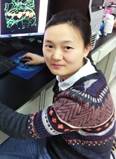脑科学研究团队
一、研究方向
脑科学中心团队现有工作人员5人,其中教授3人。本团队主要以家犬及果蝇为研究模型,结合遗传学、脑影像、电生理分析、基因编辑、高通量动物行为检测和筛选、神经环路示踪、生物信息学以及蛋白质组学等多学科手段,深入研究以下几个科学问题:1)孤独症等重大脑疾病的治疗和干预策略;2)睡眠、昼夜节律和学习记忆等行为和衰老的神经基础;3)神经发育障碍的调控机制。
团队成员先后承担国家自然科学基金、科技部、中科院先导项目、北京市科委和和湖北省自然科学基金等多个项目。团队已在Cell, Molecular Psychiatry, Nature Communications, Cell Research, Current Biology, PNAS, Cell Discovery, Cell Reports, eLife, Mol Cell Proteomics, Journal of Neuroscience, Trends in Neurosci、Trends in Genet, Genetics, Journal of Cell Science, PLOS Genetics, Human Molecular Genetics, Development, 和Molecular and Cellular Proteomics等高水平杂志上发表论文60余篇,获得专利10项。
二、团队成员

|
张永清,博士,教授,博士生导师,团队负责人。曾任中国科学院遗传与发育生物学研究所研究员(2004-2023)、遗传发育所副所长(2009-2016)、中科院前沿科学与教育局副局长(2016-2022)。2004 年入选中国科学院"百人计划",2005年获得国家杰出青年科学基金。2012年获批政府特殊津贴专家。曾任《遗传》杂志主编,Journal of Genetics and Genomics 副主编,Faculty 1000遗传学和基因组学评论员,现任 Neuroscience Bulletin 副主编,Scientific Reports编委。先后承担科技部“生殖与发育”和“变革性技术”重点研发计划项目(项目首席)。近年来主要以猴和家犬等为实验动物模型,通过多学科的研究手段致力于研究神经突触的发育和功能,以及相关重大神经疾病特别是孤独症的分子细胞和神经环路机制以及药物研发。创建了多个基因突变和药物诱导的孤独症猴模型。在国际上首次绘制了家犬脑发育的蛋白质表达时空图谱;创建了AI辅助的适用于家犬的行为分析方法和瞳孔测量仪;成功利用基因编辑技术构建了Shank3突变犬,且突变犬能够很好的模拟孤独症病人的临床表现;在国际上首创基因编辑孤独症家犬研究模型,设计和建立了新的表型检测范式,为研发孤独症药物和干预提供了不可取代的新模式。迄今在Cell、Cell Research、J Cell Biol、PNAS、Trends in Neurosci、Trends in Genet, Cell Reports,Cell Discovery和eLife等国际学术期刊发表论文50余篇,获批专利10项,单篇最高引用大于700余次。https://bio.hubu.edu.cn/info/2124/14604.htm |

|
金珊,博士,教授,博士生导师,中国湖北省细胞生物学会理事。研究领域为神经退行性疾病发病分子遗传机制及其相关基因功能解析。https://bio.hubu.edu.cn/info/2108/14131.htm |

|
刘志华,博士,教授,博士生导师,中国细胞生物学学会节律分会委员,湖北省细胞生物学会理事。湖北省百人计划获得者。研究领域为睡眠和昼夜节律等行为调控的神经生物学机制,包括1)鉴定调控睡眠和昼夜节律的新基因,发掘睡眠和节律行为调控的新靶点。2)昼夜节律和睡眠调控机制如何应对环境光线和温度的变化。3)睡眠和生物钟紊乱对代谢和生理功能的影响及其应对机制。https://bio.hubu.edu.cn/info/2110/14123.htm |

|
毛传樨,博士,讲师,硕士生导师。研究领域为细胞骨架的动态调控与神经退行性疾病。https://bio.hubu.edu.cn/info/2163/14266.htm |

|
熊英,博士,讲师,硕士生导师。湖北省楚天学子获得者。研究领域为开发和利用基于先进质谱仪的蛋白质组学新技术和方法,揭示神经系统疾病的分子致病机制,鉴定用于疾病诊断或治疗的潜在生物标志物和靶点。 Email: ying.xiong(AT)hubu.edu.cn |
三、研究内容
揭示脑疾病的发病机制、研发早期诊断和干预手段,降低脑疾病的危害,是面向人民生命健康的重大需求,也是实施健康中国战略的有力保障。脑科学的主要任务之一是深入理解脑认知功能的神经基础,同时针对脑疾病开发早期诊断和干预手段。我们团队以经典的果蝇和新型基因编辑家犬为模型,重点研究以下几个方面:
1. 以家犬为模型研究孤独症等重大脑疾病的发病机制和干预策略
犬作为新一代的脑疾病动物模型具有独特的优势,包括社会认知水平、社交行为机制和脑区功能与人类高度相似。相较于猕猴模型,犬具有繁育速度快、成本低的特点。团队的工作主要分为三个方面:
1)利用先进的基因编辑技术,构建孤独症等重大脑疾病的突变体模型。
2)结合认知能力测试、面孔感知与加工技术、活体钙成像以及清醒动物功能磁共振成像等多种技术手段,并融入人工智能,设计和建立家犬模型的表型检测新范式。
3)在家犬脑疾病模型中,研究候选药物和物理干预的效果。这些干预包括候选药物和小分子化合物的评估,以及非侵入性的经颅脑刺激、光遗传分析,和微创的侵入性的化学遗传技术等。
2. 以果蝇等模型研究行为调控和衰老的神经基础:
约75%的人类疾病基因在果蝇中都有同源基因。果蝇也具备昼夜节律、睡眠、学习记忆等保守行为。团队将在以下几个方面开展研究:
1)鉴定调控睡眠和昼夜节律的新基因和信号通路,发掘睡眠和节律行为调控的新靶点,并研究睡眠和生物钟紊乱对代谢和生理功能的影响及其应对机制。
2)解析学习记忆能力的成熟和衰老的分子调控机制。
3)探讨神经发育障碍的分子调控机制。
4)利用细胞和动物模型以及病人样品,通过多组学数据整合分析等,从分子和细胞水平揭示神经系统疾病的发病机制,筛选潜在药物靶点和生物标志物。
四、承担科研项目
1. 国家自然基金委重大项目:孤独症风险基因跨物种动物模型的构建及表型鉴定,2024~2028
2. 科技部脑专项:社交障碍动物模型的创建,2021-2026。
3. 国家自然基金委创新研究群体项目:大脑发育创新群体,2020.1-2024.12。
4. 科技部重点研发计划项目:以家犬为模型解析社交与情感的生物学基础,2019-2024。
5. 国家自然基金委重点项目:利用基因编辑技术创建Shank3突变自闭症家犬模型,2019.1-2023.12。
6. 国家自然科学基金面上项目:磷转运蛋白对寿命调控的机理研究,2019-2022。
7. 国家自然基金委国际合作与交流项目:胶质细胞调控神经发育和重构的分子细胞机制,2019-2021。
8. 中科院先导项目:重大精神疾病发病机制,2018-2022。
9. 北京市科委脑计划:自闭症和抑郁症行为障碍的神经环路机制,2018-2021。
10. 国家自然基金重大项目:神经突触的发育与功能,2015 -2019。
11. 国家自然科学基金面上项目:微管乙酰化状态与tau微管毒性的关系, 2015-2018。
12. 科技部生殖与发育专项:神经元迁移、形态发生和微环路形成的调控机制,2014-2018。
13. 国家自然基金重大国际合作项目:解析BMP信号通路在果蝇神经肌肉突触中的调节机制及其在ACSL4相关的智力发育障碍中的作用,2012-2016。
14. 国家自然科学基金面上项目:微管剪切蛋白Katanin 60的功能解析,2011-2013。
15. 国家自然基金重点项目:脑肿瘤基因brat与脆性智力低下基因dfmr1的互作及其在神经突触的功能,2010-2013。
16. 农业部转基因专项,2010-2011。
17. 国家自然科学基金面上项目:人类Kenny-Caffey综合症果蝇模型的建立及致病基因dTBCE功能解析,2009-2011。
18. 国家科技部973项目:脑发育的分子调控机制, 2007-2011。
19. 国家自然基金国际合作项目:解析FMRP的功能域和互作蛋白,2007-2009。
20. 国家自然基金杰出青年基金:神经突触的去组装及其相关疾病的分子遗传机制,2006-2009。
21. 863项目:智力障碍的临床与基础研究,2006-2008,首席:张永清教授。
22. 国家自然基金重点项目:脆性X智力低下的遗传分子基础,2005-2008。
23. 美国FRAXA研究基金会博士后基金,2005-2006。
五、 学术论文
1. Zhu, F., Shi, Q., Jiang, Y.H., Zhang, Y.Q., and Zhao, H. (2024). Impaired synaptic function and hyperexcitability of the pyramidal neurons in the prefrontal cortex of autism-associated Shank3 mutant dogs. Mol Autism 15, 9.
2. Wu, L., Mei, S., Yu, S., Han, S. and Zhang, Y. Q. (2023). Shank3 mutations enhance early neural responses to deviant tones in dogs. Cereb. Cortex (N. Y. N.Y.: 1991) 33, 10546–10557.
3. Tian, R., Li, Y., Zhao, H., Lyu, W., Zhao, J., Wang, X., Lu, H., Xu, H., Ren, W., Tan, Q.-Q., et al. (2023). Modeling SHANK3-associated autism spectrum disorder in beagle dogs via CRISPR/Cas9 gene editing. Mol. Psychiatry 28, 3739–3750.
4. Ren, W., Huang, K., Li, Y., Yang, Q., Wang, L., Guo, K., Wei, P. and Zhang, Y. Q. (2023). Altered pupil responses to social and non-social stimuli in Shank3 mutant dogs. Mol. Psychiatry 28, 3751–3759.
5. Tingting Li, Wenwen Shi, Margaret S. Ho*, Yong Q. Zhang*. A Pvr–AP-1–Mmp1 signaling pathway is activated in astrocytes upon traumatic brain injury. eLife, 2023, https://elifesciences.org/reviewed-preprints/87258
6. Md Shafayat Hossain, Aiyu Yao, Xinhua Qiao, Wenwen Shi, Ting Xie, Chang Chen, Yong Q. Zhang. Gbb glutathionylation promotes its proteasome-mediated degradation to inhibit synapse growth. J Cell Biol, 2023, in press.
7. Huilin Hong, Chao Guo, Xueru Liu, Liguang Yang, Wei Ren, Hui Zhao, Yuan Li, Zhongyin Zhou, Sin Man Lam, Jidong Mi, Zhentao Zuo, Cirong Liu, Guo-Dong Wang, Yan Zhuo, Ya-ping Zhang, Yixue Li, Guanghou Shui, Yong Q. Zhang*, Ying Xiong*. Differential effects of social isolation on oligodendrocyte development in different brain regions: insights from a canine model. Front Cell Neurosci, 2023.
8. Li, B., Zhao, H., Tu, Z., Yang, W., Han, R., Wang, L., Luo, X., Pan, M., Chen, X., Zhang, J., Xu, H., Guo, X., Yan, S., Yin, P., Zhao, Z., Liu, J., Luo, Y., Li, Y., Yang, Z., Zhang, B., Tan, Z., Xu, H., Jiang, T., Jiang, Y.H., Li, S., Yong Q. Zhang, Li, X.J.. CHD8 mutations increase gliogenesis to enlarge brain size in the nonhuman primate. Cell Discov, 2023, 9: 27.
9. Xiong, Y., Hong, H., Liu, C., Yong Q. Zhang. Social isolation and the brain: effects and mechanisms. Molecular Psychiatry, 2023, 28:191-201.
10. Niu X, Mao CX, Wang S, Wang X, Zhang Y, Hu J, Bi R, Liu Z, & Jin S. alpha-Tubulin acetylation at lysine 40 regulates dendritic arborization and larval locomotion by promoting microtubule stability in Drosophila. PLoS ONE, 2023,18: e0280573.
11. Xu, H., Hao, H., Wang, S., Liu, X., Lyu, W., Zuo, Z., Zhuo, Y., Mi, J., Yong Q. Zhang, Tian, R., Zhu, H. A dog carrying mutations in AVP-NPII exhibits key features of central diabetes insipidus. J Genet Genomics, 2022.
12. Hui Zhao, Enqi Liu, Yong Q. Zhang, Dog models of human atherosclerotic vascular diseases. Mammalian Genome, 2022.
13. Wei Ren, Pengfei Wei, Shan Yu, Yong Q. Zhang, Left-right asymmetry and attractor-like dynamics of dog’s tail wagging during dog-human interactions. iScience, 2022.
14. Huilin Hong, Zhiguang Zhao, Xiahe Huang, Chao Guo, Hui Zhao, Guo-Dong Wang, Ya-Ping Zhang, Jian-ping Zhao, Jianhui Shi, Qing-Feng Wu, Yong-hui Jiang, Yingchun Wang, Lei M. Li, Zhuo Du, Yong Q. Zhang and Ying Xiong, Brain proteome comparison reveals specific molecular pathways conserved in dog and human. Mol Cell Proteomics, 2022.
15. Elsayed Metwally, Guoli Zhao, and Yong Q. Zhang, The calcium-dependent protease calpain in neuronal remodeling and neurodegeneration, Trends Neurosci, 2021, 44(9): 741-752.
16. Jianbo Li, Ligang Wang, Dawei Yu, Junfeng Hao, Longchao Zhang, Adeniyi C. Adeola, Bingyu Mao, Yun Gao, Shifang Wu, Chunling Zhu, Yong Q. Zhang, Jilong Ren, Changgai Mu, David M. Irwin, Lixian Wang, Tang Hai, Haibing Xie, Yaping Zhang, Single-cell RNA Sequencing Reveals Thoracolumbar Vertebra Heterogeneity and Rib-genesis in Pigs. Genomics, Proteomics & Bioinformatics, 2021, 19(3), 423-436
17. Yicong Jia, Shan Jin, Kunkun Hu, Lei Geng, Caihong Han, Ruxue Kang, Yuxin Pang, Erjun Ling, Eng King Tan, Yufeng Pan& Wei Liu. Gut microbiome modulates Drosophila aggression through octopamine signaling. Nat Commun, 2021,12:2698.
18. 任炜, 余山和张永清, 计算行为学研究进展, 科学通报,2021
19. Gu, L., Wang, L., Chen, H., Hong, J., Shen, Z., Dhall, A., Lao, T., Liu, C., Wang, Z., Xu, Y., et al. (2020). CG14906 (mettl4) mediates m6A methylation of U2 snRNA in Drosophila. Cell Discov 6, 44.
20. Kai Zhao, Huilin Hong, Lu Zhao, Sheng Huang, Ying Gao, Elsayed Metwally, Yuqiang Jiang, Stephan J. Sigrist, Yong Q. Zhang, Postsynaptic cAMP signalling regulates the antagonistic balance of glutamate receptor subtypes. Development, 2020, 147, dev191874.
21. Elsayed Metwally#, Guoli Zhao#, Qifu Wang and Yong Q. Zhang*, Ttm50 facilitates calpain activation by anchoring it to calcium stores and increasing its sensitivity to calcium. Cell Research, 2020, 0:1–17
22. Huilin Hong, Kai Zhao, Shiyan Huang, Sheng Huang, Aiyu Yao, Yuqiang Jiang, Stephan Sigrist, Lu Zhao and Yong Q. Zhang, Structural Remodeling of Active Zones Is Associated with Synaptic Homeostasis. Journal of Neuroscience,2020, 40 (14), 2817-2827 (cover story).
23. Hui Zhao, Qiqi Wang, Ting Yan, Yu Zhang, Hui-juan Xu, Hao-peng Yu, Zhuchi Tu, Xiangyu Guo, Yong-hui Jiang, Xiao-jiang Li*, Huihui Zhou*, Yong Q. Zhang *. Maternal valproic acid exposure leads to neurogenesis defects and autism-like behaviors in non-human primates, Translational Psychiatry, 2019, 9:267.
24. Mingyue Jia, Danqing Meng, Mo Chen, Tingting Li, Yong Q. Zhang * and Aiyu Yao*, Drosophila homolog of the intellectual disability-related long-chain acyl-CoA synthetase 4 is required for neuroblast proliferation. Journal of Genetics and Genomics. 2019, 20;46(1):5-17.
25. 20. Yan Huang, Sheng Huang, Coralie Di Scala, Qifu Wang, Hans H Wandall, Jacques Fantini, Yong Q. Zhang *, The glycosphingolipid MacCer promotes synaptic bouton formation in Drosophila by interacting with Wnt. eLife , 2018;7:e38183.
26. Elsayed Metwally, Guoli Zhao, Wenhua Li, Qifu Wang and Yong Q. Zhang*, Calcium activated Calpain specifically cleaves glutamate receptor IIA but not IIB at the Drosophila neuromuscular junction, Journal of Neuroscience, 2019, 2213-17
27. Zhuchi Tu, Hui Zhao, Bang Li, Sen Yan, Lu Wang, Yongjin Tang, Zhujun Li, Dazhang Bai, Caijuan Li, Yingqi Lin, Yuefeng Li, Jianrong Liu, Hao Xu, Xiangyu Guo, Yong-hui Jiang*, Yong Q. Zhang* and Xiao-Jiang Li*, CRISPR/Cas9-mediated disruption of SHANK3 in monkey leads to drug-treatable autism-like symptoms, Human Molecular Genetics. 2019, 28(4), 561–571.
28. Hui Zhao, Yong-hui Jiang, and Yong Q. Zhang. Modeling Autism in Non-human Primates: Opportunities and Challenges. Autism Research. 2018, 11, 686-694, (invited review).
29. Song Wu, Guangming Gan, Zhiping Zhang, Jie Sun, Qifu Wang, Zhongbao Gao, Meixiang Li, Shan Jin, Juan Huang, Ulrich Thomas, Yong-hui Jiang, Yan Li, Rui Tian, Yong Q. Zhang. A pre-synaptic function of Shank protein in Drosophila. Journal of Neuroscience, 2017, 37, 11592-11604.
30. Hui Zhao, Zhuchi Tu, Huijuan Xu, Sen Yan, Huanhuan Yan, Yinghui Zheng, Weili Yang, Jiezhao Zheng, Zhujun Li, Rui Tian, Youming Lu, Xiangyu Guo, Yong-hui Jiang, Xiao-Jiang Li, Yong Q. Zhang. Altered neurogenesis and disrupted expression of synaptic proteins in Shank3 deficient non-human primate prefrontal cortex. Cell Research, 2017, 27(10):1293-1297. doi: 10.1038/cr.2017.95.
31. Chuan-Xi Mao, Xue Wen, Shan Jin, and Yong Q. Zhang. Increased acetylation of microtubules rescues human tau-induced microtubule defects and neuromuscular junction abnormalities in Drosophila. Disease Models and Mechanisms 2017, 10, 1245-1252.
32. Ma X, Li X, Yi P, Wang C, Weng J, Zhang L, Zhu X, Jin S, Liu J. PiT2 regulates neuronal outgrowth through interaction with microtubule-associated protein 1B. Scientific Reports, 2017, 7:17850-17862.
33. Yan Huang, Sheng Huang, Sin Man Lam, Zhihua Liu, Guanghou Shui, and Yong Q. Zhang. Acsl, the Drosophila ortholog of intellectual disability-related ACSL4, inhibits synaptic growth by altered lipids. Journal of Cell Science, 2016, 129, 4034-4045.
34. Fangfang Jiang, Falong Lu, Peixue Li, Wei Liu, Lu Zhao, Qifu Wang, Xiaofeng Cao, Lei Zhang, and Yong Q. Zhang. Drosophila homolog of FMRP maintains genome integrity by interacting with Piwi. Journal of Genetics and Genomics, 2016, 43: 11-24 (cover story).
35. Wenhua Li, Aiyu Yao, Hui Zhi, Kuldeep Kaur, Yong-chuan Zhu, Mingyue Jia, Hui Zhao, Qifu Wang, Shan Jin, Guoli Zhao, Zhi-Qi Xiong, and Yong Q. Zhang. Angelman syndrome protein Ube3a regulates synaptic growth and endocytosis by inhibiting bone morphogenetic protein signaling in Drosophila. PLoS Genetics, 2016 May 27;12(5):e1006062.
36. Guoli Zhao, Yingga Wu, Li Du, Wenhua Li, Ying Xiong, Aiyu Yao, Qifu Wang and Yong Q. Zhang. Drosophila S6 kinase like inhibits neuromuscular junction growth by downregulating the BMP receptor Thickveins. PLoS Genet, 2016, 27;12(5):e1006062.
37. Podufall, J., Tian, R., Knoche, E., Puchkov, D., Walter, A.M., Rosa, S., Quentin, C., Vukoja, A., Jung, N., Lampe, A., Wichmann, C. Bohme, M. Depner, H. Yong Q. Zhang. Schmoranzer, J. Sigrist, S. J. Haucke, V. A presynaptic role for the cytomatrix protein GIT in synaptic vesicle recycling. Cell Reports 2014, 1417-1425.
38. Zhihua Liu#, Yan Huang#, Wen Hu, Sheng Huang, Qifu Wang, Junhai Han, and Yong Q. Zhang. Drosophila Acyl-CoA synthetase long-chain family member 4 inhibits synapse growth by attenuating bone morphogenetic protein signaling via endocytic recycling. Journal of Neuroscience, 2014, 34:2785-2796.
39. Chuan-Xi Mao, Ying Xiong, Zhaohuan Xiong, Qifu Wang, Yong Q. Zhang* and Shan Jin*. Microtubule-severing protein katanin regulates neuromuscular junction development and dendritic elaboration in Drosophila. Development, 2014, 141:1064-1074.
40. Wenwen Shi, Yan Chen, Guangming Gan, Dan Wang, Jinqi Ren, Qifu Wang, Zhiheng Xu, Wei Xie, and Yong Q. Zhang. brain tumor regulates neuromuscular synapse growth and endocytosis in Drosophila by suppressing Mad expression. Journal of Neuroscience, 2013, 33:12352-12363.
41. Lu Zhao, Dan Wang, Qifu Wang, Avital A. Rodal, and Yong Q. Zhang. Drosophila cyfip regulates synaptic development and endocytosis by suppressing filamentous actin assembly. PLoS Genet.2013, 9(4):e1003450.
42. Ying Xiong, Kai Zhao, Jiaxi Wu, Shan Jin and Yong Q. Zhang. HDAC6 mutations rescue human tau-induced microtubule defects in Drosophila. Proc Natl Acad Sci USA, 2013, 110(12): 4604-4609.
43. Ethan R. Graf, Vera Valakh, Christina M. Wright, Chunlai Wu, Zhihua Liu, Yong Q. Zhang and Aaron DiAntonio. RIM Promotes Calcium Channel Accumulation at Active Zones of the Drosophila Neuromuscular Junction. Journal of Neuroscience, 2012, 32:16586-16596.
44. Wei Liu, Fangfang Jiang, Xiaolin Bi, and Yong Q. Zhang. Drosophila FMRP participates in the DNA damage response by regulating G2/M cell cycle checkpoint and apoptosis. Human Molecular Genetics. 2012, 21: 4655-4668.
45. Zhihua Liu, Yan Huang, Yi Zhang, Di Chen, and Yong Q. Zhang *. Drosophila acyl-CoA synthetase long-chain family member 4 regulates axonal transport of synaptic vesicles and is required for synaptic development and transmission. Journal of Neuroscience, 2011, 31(6):2052-2063.
46. Aiyu Yao, Shan Jin, Xinhai Li, Zhihua Liu, Xuehua Ma, Jing Tang, and Yong Q. Zhang *. Drosophila FMRP regulates microtubule network formation and axonal transport of mitochondria. Human Molecular Genetics, 2011, 20(1):51-63.
47. Haiying Zhang, Ling Tian, Stephen Tobe, Ying Xiong, Songyan Wang, Xinda Lin, Yanan Liu, William Bendena, Sheng Li, and Yong Q. Zhang *. Drosophila CG10527 mutants are resistant to juvenile hormone and its analog methoprene. Biochemical and Biophysical Research Communications, 2010, 401: 182-187.
48. M Zhang, Yong Q. Zhang and Z Xu*. POSH is Involved in Egr-Bsk (TNF-JNK) Signaling and Embryogenesis in Drosophila. J Genetics and Genomics. 2010, 37(9):605-619.
49. Zhiwei Liu, Yan Chen, Dan Wang, Songyan Wang, Yong Q. Zhang *. Distinct pre- and postsynaptic dismantling processes of Drosophila neuromuscular junctions during metamorphosis. Journal of Neuroscience, 2010, 30: 11624-11634. Commented on in Faculty of 1000 at http://f1000.com/5488963
50. Dan Wang, Lijun Zhang, Guoli Zhao, Gudrun Wahlstr?m, Tapio I. Heino, Jiong Chen*, and Yong Q. Zhang *. Drosophila twinfilin is required for cell migration and synaptic endocytosis. Journal of Cell Science, 2010, 123: 1546-1556.
51. Shan Jin, Luyuan Pan, Zhihua Liu, Qifu Wang, Zhiheng Xu, and Yong Q. Zhang. Drosophila tubulin chaperone E functions at neuromuscular synapses and is required for microtubule network formation. Development, 2009, 136: 1571-1581.
52. Simon P. Reeve #, Xinda Lin#, Bahar H. Sahin, Fangfang Jiang, Aiyu Yao, Zhihua Liu, Hui Zhi, Kendal Broadie, Wei Li, Angela Giangrande, Bassem A. Hassan, Yong Q. Zhang. Mutational analysis establishes a critical role for the N terminus of Fragile X mental retardation protein FMRP. Journal of Neuroscience, 2008, 28(12):3221-3226.
53. Cui J, Zhang M, Yong Q. Zhang, Xu Z*. JNK pathway: diseases and therapeutic potential. Acta Pharmacol Sin. 2007, 28(5):601-608.
54. Feng Gu, Hai-Yin Zhang, Shao-Yi Hu, Shang-Zhi Huang, Xu Ma, Yong Q. Zhang. Erectile dysfunction in Fragile X patients. Asian J Androl, 2006, 8: 483-487.
55. Yong Q. Zhang and Kendal Broadie. Fathoming fragile X in fruit flies. Trends in Genetics, 2005, 21(1): 37-45.
56. Yong Q. Zhang, David Friedman, Zhe Wang, Elvin Woodruff III, Luyuan Pan, Janis O’Donnell and Kendal Broadie, Protein Expression Profiling of the Drosophila Fragile X Mutant Brain Reveals Upregulation of Monoamine Synthesis. Molecular and Cellular Proteomics, 2005, 4(3): 278-290.
57. Jin S,Hu G, Qian Y, Zhang L, Zhang J, Qiu G, Zeng Q, Gui J. Identification of one intron loss and phylogenetic evolution of Dfak gene in the Drosophilae melanogaster species group. Genetica, 2005, 125, 223–230.
58. Luyuan Pan, Yong Q. Zhang, Elvin Woodruff and Kendal Broadie. The Drosophila fragile X gene negatively regulates neuronal elaboration and synaptic differentiation. Current Biology. 2004, 14: 1863-1870.
59. Yong Q. Zhang, Heinrich J. G. Matthies, Joel Mancuso, Hillary K. Andrews, Elvin Woodruff, III, David Friedman and Kendal Broadie. The Drosophila fragile X-related gene regulates axoneme differentiation during spermatogenesis. Developmental Biology, 2004, 270(2): 290-307.
60. Hillary Andrews, Yong Zhang, Nick Trotta and Kendal Broadie. Drosophila Sec10 is required for hormone secretion but not general exocytosis or neurotransmission. Traffic, 2002, 3(12): 906-921.
61. Yong Zhang, Christopher Rodesch and Kendal Broadie. A living synaptic vesicle marker: synaptotagmin-GFP. Genesis: Journal Genetics and Development,2002, 34: 142-145.
62. Yong Zhang, Adina M. Bailey, Heinrich J. G. Matthies, Robert B. Renden, Mark A. Smith, Sean D. Speese, Gerald M. Rubin and Kendal Broadie. Drosophila fragile X related gene regulates the MAP1B homolog Futsch to control synaptic structure and function. Cell, 107: 2001, 591-603.
63. Yong Zhang, David Featherstone, Warren Davis, Emma Rushton and Kendal Broadie. Drosophila D-Titin is required for myoblast fusion and skeletal muscle striation. Journal of Cell Science 2000, 113: 3101-3115,
64. Yong Zhang, John Roote, Saverio Brogna, Andrew W. Davis, Daniel A. Barbash, David Nash and Michael Ashburner. stress sensitive B encodes an adenine nucleotide translocase in Drosophila melanogaster. Genetics, 1999, 153 (2): 891-903.
65. Christos Louis, Encarna Madueño, Mahmoud Omard, George Papagiannaki, Robert D. C. Saunders, Charalambos Savakis, Inga Sidén-Kiamos, Lefteris Spanos, Pantelis Topalis, Yong Zhang, Michael Ashburner, Panayotis Benos, Viatcheslav N. Bolshakov, Peter Deak, David M. Glover, Siegrun Herrmann and Fotis C. Kafatos. One hundred and five new potential Drosophila melanogaster genes revealed through STS analysis. Gene, 1997, 195: 187-193.
66. Yong Zhang and Kendal Broadie. Cloning, mapping and tissue specific expression of Drosophila clathrin-associated protein AP50 gene. Gene, 1999, 233: 171-179.
67. Edwin Chan, Yong Zhang, J. D. Hoheisel and Cahir J. O’kane. Identification and characterization of the gene for Drosophila L3 ribosomal protein. Gene, 1998, 212: 119-125.
68. Edwin Chan, Yong Zhang and Cahir J. O'Kane. Identification and characterization of the gene for Drosophila S20 ribosomal protein. Gene, 1997, 200: 85-88.
69. G Bonnema, J Hontelez, R Verkerk, Y Zhang, R van Daelen, A van Kammen and P Zabel. An improved method of partial digestion of plant megabase DNA, suitable for YAC cloning. The Plant Journal, 1996, 9(1): 125-133.
六、 授权发明专利
1. 吴梁, 袁思琦, 张永清; 生物信号检测设备, 中国, CN202220361594.9
2. 洪慧琳, 吴梁, 张永清; 一种动物组织切片装置, 中国, CN202220238374
3. 石文文, 张永清; 犬Rosa26基因及其应用, 中国, CN202210391221.0
4. 石文文, 张永清, 吕雯; 特异性靶向犬Rosa26基因的sgRNA及其应用, 中国, CN202210391246.0
5. 米继东, 赵建平, 张永清, 田瑞; 一种用于评价犬认知能力的测试装置及方法,中国, CN202010955803.8
6. 米继东, 赵建平, 张永清, 田瑞; 一种利用多单元装置评价犬与犬社交能力的方法, 中国, CN202010955786.8
7. 石文文, 张永清; 一种用于固定昆虫进行头部损伤实验的装置和方法, 中国, CN201811560013.9
8. 石文文, 张永清; 一种力度可控的造成昆虫创伤性脑损伤的装置和方法, 中国, CN201811561124.1
9. 米继东, 赵建平, 张永清; 自闭症模型犬的建立方法, 中国, CN201811577970.2
10. 石文文, 张永清, 汪奇馥; 抗Brat蛋白的单克隆抗体及应用, 中国, CN201310166971.9




